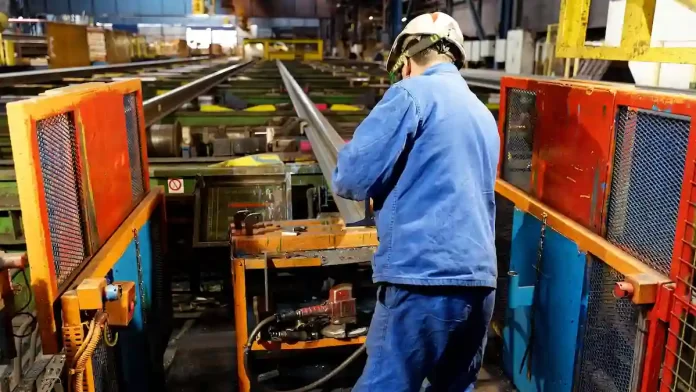Union Minister of State for Steel and Rural Development, Faggan Singh Kulaste on Monday informed Parliament about Government Measures to Decarbonise Steel Production in India.
The emissions from iron and steel sector reported by Ministry of Environment, Forest and Climate Change (MoEFCC) in India’s latest Biennial Update Reports (BURs) to the United Nations Framework Convention on Climate Change (UNFCCC) for the year 2016 was135.420 million tonnes CO2.
Emissions from iron and steel sector in 2030 will depend on the actual production of steel at that time.
Long and Short Term Measures
Ministry of Steel is committed to Net-Zero target by 2070. Towards this, in short term (FY 2030), reduction of carbon emissions in steel industry through promotion of energy and resource efficiency, renewable energy etc. is the focus.
For the medium term (2030-2047), Green Hydrogen and Carbon Capture, Utilisation and Storage are the focus areas. For long term (2047-2070), disruptive alternative technological innovations can help achieve the transition to net-zero.
For this purpose, Ministry of Steel is continuously engaging with various stakeholders. Two meetings of Parliamentary Consultative Committee, held in FY 2022, were dedicated to decarbonization and improvement of resource efficiency in Steel Sector.
Other steps taken for promoting decarbonization in steel industry include:
Srcap Recycling Policy
Steel Scrap Recycling Policy, 2019 enhances the availability of domestically generated scrap to reduce the consumption of coal in steel making.
Ministry of New and Renewable Energy (MNRE) has announced National Green Hydrogen Mission for green hydrogen production and usage. The steel sector has also been made a stakeholder in the Mission.
Motor Vehicles (Registration and Functions of Vehicles Scrapping Facility) Rules September 2021, shall increase availability of scrap in the steel sector.
National Solar Mission 2010
National Solar Mission launched by MNRE in January 2010 promotes the use of solar energy and also helps reduce the emission of steel industry.
Perform, Achieve and Trade (PAT) scheme, under National Mission for Enhanced Energy Efficiency, incentivizes steel industry to reduce energy consumption.
The steel sector has adopted the Best Available Technologies (BAT) available globally, in the modernisation& expansions projects.
Japan’s New Energy and Industrial Technology Development Organization (NEDO) Model Projects for Energy Efficiency Improvement have been implemented in steel plants.
The financial impact on steel sector due to climate transition will be contingent on the actual measures taken to achieve the Net-Zero target by 2070.
